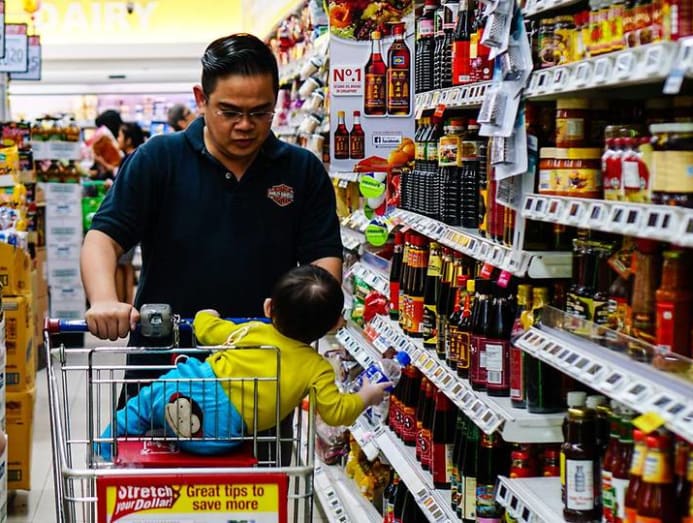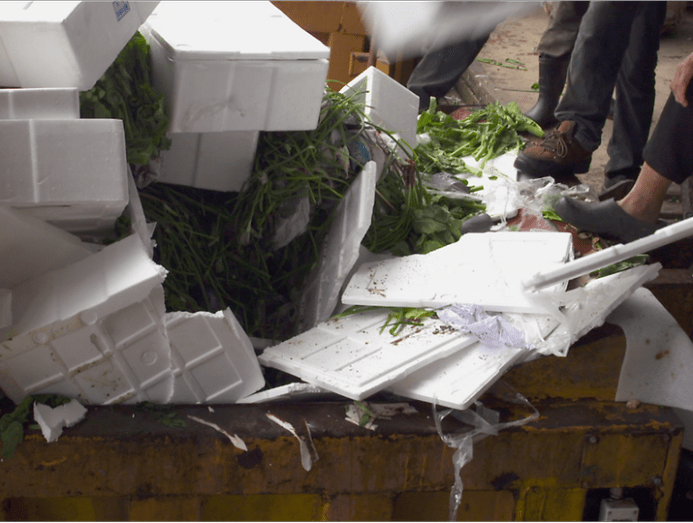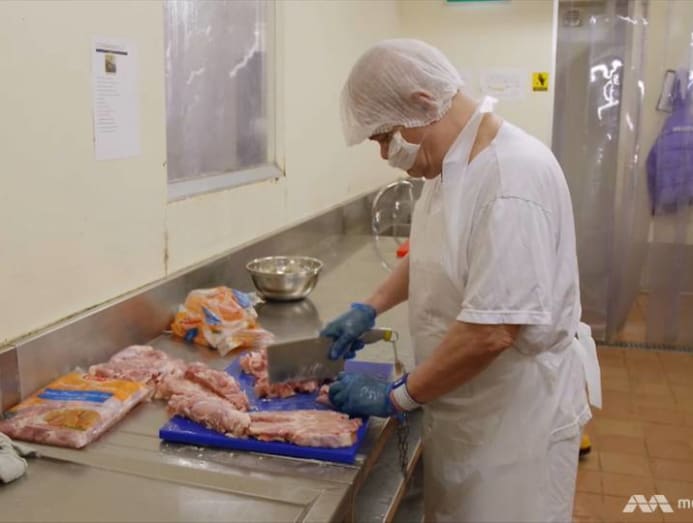Commentary: Reduce waste by redistributing food surplus to those in need
SINGAPORE: The Resources Sustainability Bill, passed in Parliament terminal calendar week, is a landmark legislation that will put into action improve upstream management of waste matter that underpins the Zero Waste product Masterplan.
Still, the master plan should not be designed and implemented in silo to our social challenges.
Mitigating food loss presents a tremendous opportunity for us to resolve food security problems for vulnerable groups, an impassioned plea I made during the contend.
READ: Commentary: Climate activity is our generation's 1965
REVIEW Expert SAMARITAN LAWS
Time is not on our side. We must urgently encourage food-loss-reducing behaviours through food labelling policies and expeditiously enacting Good Samaritan or Best Practice Laws.
The National Ecology Agency and Singapore Food Agency, as assured by the Senior Minister of State for Environs and H2o Resources Dr Amy Khor in response to my call, are exploring Good Samaritan laws to ease business concerns over donation of backlog food - similar to those already implemented in Italy and the United States.
Currently, the Singapore Food Agency does non distinguish between "apply past" or "all-time before" and "death appointment", resulting in huge nutrient wastage because products are not allowed to exist sold or distributed beyond expiry dates.
Yet, in many countries, including the United Kingdom, Hong Kong, Australia and New Zealand, utilize of all these dissimilar terms mean that after the nutrient reaches its "use-past" appointment, the quality and flavour of the food is lowered merely it is still fit for consumption.
READ: Commentary: Turning trash into treasure - education kids to create, not swallow, through upcycling
We must be articulate in our policy on unlike engagement labels and begin to educate consumers on the meaning of each to reduce waste. Studies accept shown that when consumers are conspicuously shown on the food label that "use by" and "best before" means lower food quality just not food safety, and how food waste results in negative environmental impact, they are more than willing to pay for food that's past its use-by/best-before dates.

Conscious labelling coupled with Good Samaritan laws will besides clearly foster an surroundings that allows and encourages more food (which has gone past its "best before" date but not exceeding say six months to ensure nutrient safety) to be donated to charities.
In addition, the underused Business-IPC Partnership Scheme or BIPs, which gives 2.five times revenue enhancement-deduction to businesses for donations in kind, can be extended to include donation of edible food surplus to charities.
I accept no doubt businesses tin have the atomic number 82 on nutrient waste matter redistribution because I know many similar Samsui Supplies through the Company of Good, a corporate giving initiative past National Volunteer & Philanthropy Eye - which I am also involved with.
TACKLE Food INSECURITY
A lay estimation from the Household Expenditure Survey 2017/2018 comparing the expenditures of the everyman quintile Singaporeans suggests nearly 49 per cent of their income is spent on nutrient.
Madam Gopal who lives in Toa Payoh is one such Singaporean. In her 70s, she has zero income and survives on a S$500 per calendar month from her social service organisation. She saves a minimum of S$100 per month as a beneficiary of Free Food for All, a charity that receives and redistributes donated food.
READ: Commentary: Wasteful practices of abundance must stop
ONE Singapore, a charity working on eradicating poverty, estimated in that location could be as many equally 400,000 people in Singapore unable to see bones needs similar food, wearing apparel, derived by examining how many among the lowest-quintile income groups are spending more than than they are earning.
A 2022 written report past the Lien Centre for Social Innovation besides institute one in 5 low-income households confront severe food insecurity.

Still every year, we generate 763,000 tonnes of nutrient waste product as a land. Let'southward assume conservatively that just one-half of this or 382,000 tonnes tin be redistributed.
This could make a total of 382 million meals, based on one kg per repast.
On average, three meals a day are taken and then each person consumes 1,095 daily meals per year, feeding 390,000 people for an entire yr.
I'm non under any illusion that it's as simple as I've made out to be but I recall nosotros will hold this prospect is far from impossible.
A NEEDED NATIONAL EFFORT
There are several customs groups that are already doing good work on the basis in this regard although clearly a national strategy is needed to optimise systemic touch and avoid duplication.
SG Food Rescue is one such group that have demonstrated there is much in our food value concatenation to be saved and redistributed. Its volunteers collect a staggering 1,500kg of unsold fresh produce one time a week from Pasir Panjang Wholesale Centre.
Sometimes they even collect twice a week. About 500 to 700kg of that goes to charities, namely, Free Food For All, Beyond Social Services and St Theresa's Dwelling that feed the needy, while the rest is sent to a soup kitchen in Little Bharat, Krishna's Kitchen.
The soup kitchen turns the vegetables into meals to feed the hungry, especially migrant workers. About 200kg ends upwardly with a community initiative in Marine Terrace, and i of the vi public community fridges, benefiting low-income residents.

READ: The Singaporean who found a manner for inmates, people with disabilities to assist seniors
Not but will nosotros drive food resources sustainability past reducing waste, such a national endeavor will also significantly relieve financially strapped households of a huge brunt.
In addition, based on estimated costs for programmes like Meals-on-Wheels and Willing Hearts that provide more than x,000 daily meals in full, close to S$fifteen million could be freed up and redirected to other aspects of social support for beneficiaries. They demand more support because needs are changing with college living standards and higher temperatures (requiring air conditioning and more fans).
SUSTAINABILITY IS A Future INVESTMENT
Engaging the business customs must be a top priority considering sustainability is a future investment for economic growth, new market opportunities and job creation.
Companies must be nudged out of their comfort zones into a greener and more than innovative direction as nosotros work towards edifice a round economic system.
This round economic system we strive for must include a virtuous food wheel considering sustainability is as well a social parameter to secure a more inclusive society.
The Nada Waste Masterplan must not be a wasted opportunity to bring the conversations of climate change and social bear on to the same tabular array.
READ: Desire to practise more than to fight climate alter? Cut downwards on driving, buying stuff and eating meat
If a small-scale group of citizen volunteers like SG Food Rescue can move hundreds of tonnes of food loss every year to where they are needed most, imagine what we can do if we – regime, business organization and community – truly commit our will and resources to a national vision of getting all Singaporeans who are nutrient-insecure fed?
We can and must do this.
Anthea Ong is a Nominated Member of Parliament, a social entrepreneur and Author of 50 Shades of Honey.
Source: https://cnalifestyle.channelnewsasia.com/commentary/commentary-reduce-waste-redistributing-food-surplus-those-need-295411
0 Response to "Commentary: Reduce waste by redistributing food surplus to those in need"
Postar um comentário